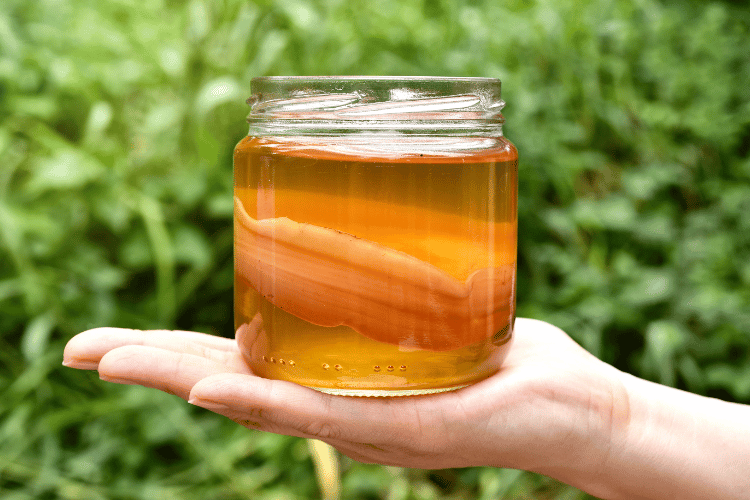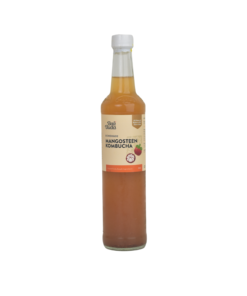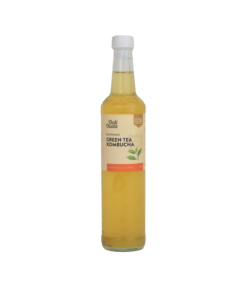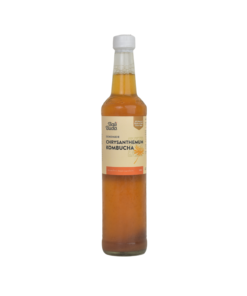Blog
Kombucha: A Healthy Elixir for Your Gut
So, you’ve heard the buzz about kombucha, but what exactly is it?
This fizzy, fermented beverage has taken the health and wellness world by storm in recent years, and for good reason. In this blog post, we’ll take a deep dive into the world of kombucha, exploring its origins and its many health benefits.
What Is Kombucha?
Kombucha is not your average beverage. It’s often referred to as “mushroom tea” or “booch” for short, but it doesn’t actually contain mushrooms. Instead, it’s made from a few simple ingredients: tea, sugar, water, and a SCOBY (Symbiotic Culture of Bacteria and Yeast).
SCOBY – This strange-looking pancake-like culture is the heart and soul of kombucha brewing. It’s a symbiotic mix of bacteria and yeast that ferments the tea and sugar, transforming them into the tangy and fizzy beverage we know and love.
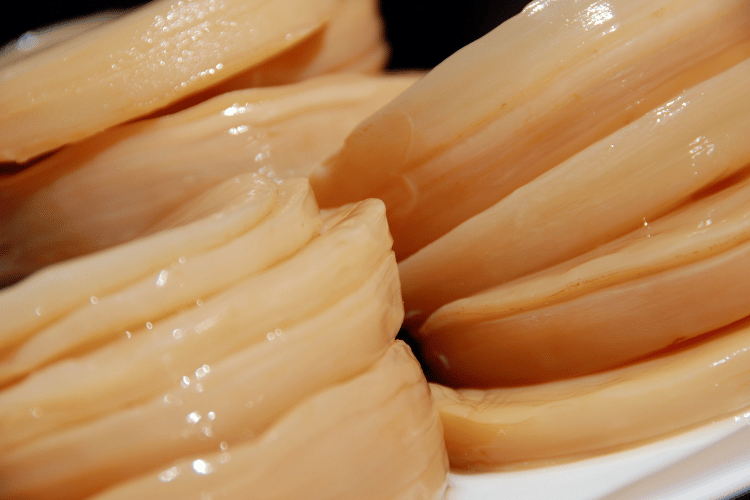
Where is Kombucha coming from?
1. Etymology
2. The Mysterious Origins of Kombucha
Health Benefits
Probiotic Powerhouse
Your gut plays a big role in your immune system, and kombucha can help keep it in tip-top shape. Those probiotics can strengthen your immune defenses, making it harder for those pesky cold and flu bugs to mess with you. Think of it as a shield made of bacteria (the good kind).
If you have not read it yet, we have a very good blog here about fermented foods!
Detoxification
Kombucha contains antioxidants, which are like little warriors that help your body get rid of harmful toxins. They work to neutralize free radicals, which can damage your cells. So, while it might not magically erase all the junk food you ate over the weekend, it can certainly help your body recover.
Improved Digestion
this fermented beverage is like a superhero for your gut. It’s loaded with probiotics, which are the friendly bacteria that help with digestion. They can assist in breaking down food and absorbing nutrients more efficiently. So, if you’ve ever experienced bloating or tummy troubles after a big meal, a sip of kombucha might come to the rescue!
Joint Health
Kombucha might give your joints some love too. Some types contain glucosamine, a compound that’s good for joint health. If you’ve got creaky knees or achy joints, this could be a tasty way to lend them a hand.
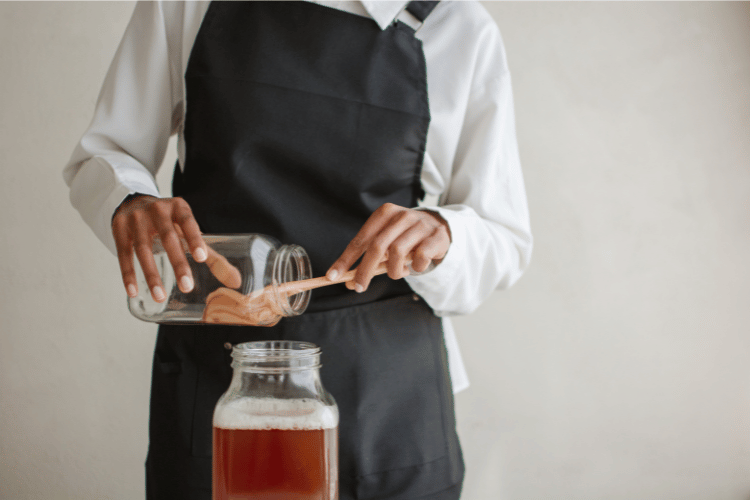
Mental Clarity
Remember those B vitamins in kombucha? They’re not just for show. They can support your brain health, helping you stay sharp and focused. So, if you’ve got a big presentation or a tricky puzzle to solve, kombucha might be your brain’s best buddy.
Weight Management
Skin Health
Clear, radiant skin isn’t just about fancy skincare products. It often starts from within, and a healthy gut can contribute to a clearer complexion. So, if you’ve been on a quest for that elusive “glow,” kombucha could be a tasty addition to your skincare routine.
Energy Boost
Feeling a bit sluggish? Kombucha’s natural caffeine content (from the tea it’s brewed with) can give you a gentle energy lift without the jitters or crashes that can come from other caffeinated drinks. It’s like a friendly pat on the back to keep you going.
Finding Quality Store-Bought Kombucha
Here are some tips you want to keep in mind for finding high-quality kombucha at your local grocery store or health food store:
-
Check the Ingredients: The best kombuchas have minimal ingredients: tea, sugar, water, and live cultures. Avoid those with added artificial flavors or excessive sugar.
-
Look for Live Cultures: Ensure that the bottle mentions live cultures or probiotics, as these are what provide the health benefits.
-
Low Sugar: Opt for kombuchas with lower sugar content. Some can be quite sweet, which may not align with your health goals.
-
Local Brands: If possible, support local kombucha brewers. They often use fresh ingredients and unique flavors.
-
Experiment: Try different brands and flavors to find your favorites. Kombucha comes in a wide range of flavors, from classic to exotic.
At Bali Buda, we just care! We do not use any artificial flavors and you can trust our scobys to do their part well enough that you will get all the goodness without too much sugar, in each bottle of Kombucha.
Health Recommendations
Before you embark on your kombucha journey, keep these health recommendations in mind:
Moderation: While it offers numerous health benefits, it’s best enjoyed in moderation. One or two servings a day should suffice.
Allergies: Be cautious if you have a history of allergies to yeast or mold, as kombucha may trigger a reaction.
Pregnancy and Medications: If you’re pregnant or taking medications, consult your healthcare provider before consuming kombucha.
DIY Safety: If you decide to make kombucha at home, follow proper hygiene and safety practices to prevent contamination.
Takeaway
In conclusion, kombucha is more than just a trendy beverage; it’s a health-boosting elixir with a fascinating history. Whether you choose to make it at home or pick up a bottle at the store, kombucha can be a delightful addition to your daily routine. So, go ahead, take a sip, and toast to a healthier gut and a happier you!

 Indonesia
Indonesia
